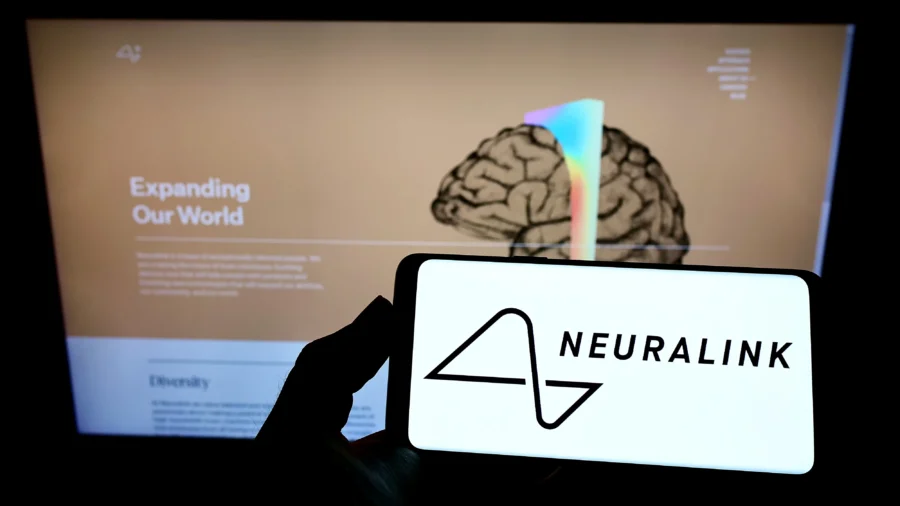Elon Musk’s Neuralink brain implant encountered a chip malfunction during the first human trial, within weeks of the chip having been implanted.
The first human trial of the Neuralink brain chip, officially known as the brain-computer interface (BCI), was done on a 29-year-old patient named Noland Arbaugh, who was paralyzed from the shoulders down as a result of an accident that occurred eight years ago.
Mr. Arbaugh received his Neuralink BCI implant in January this year after a successful surgery.
On Jan. 30, Elon Musk posted on X, formerly Twitter, “The first human received an implant from @Neuralink yesterday and is recovering well.”
During the ongoing trial, Mr. Arbaugh has been able to successfully use his implant to access his laptop, play games, browse the internet, and conduct live streams, among other functions, by controlling an on-screen cursor with his mind.
Prior to the chip implant, his only mode of using a computer or a tablet was using a mouth-held stylus, but he needed the assistance of a caregiver. Mr. Arbaugh reported that it was uncomfortable for daily use.
He said he thought the mouth-held stylus was an improvement over the BCI from even a month ago. “The games I can play now are leaps and bounds better than previous ones. I’m beating my friends in games that as a quadriplegic I should not be beating them in,” Mr. Arbaugh said according to the PRIME study progress update on May 8.
“The biggest thing with comfort is that I can lie in my bed and use [the Link]. Any other assistive technology had to have someone else help or have me sit up. Sitting causes stress mentally and on my body which would give me pressure sores or spasms. It lets me live on my own time, not needing to have someone adjust me, etc. throughout the day,” the 29-year-old further said.
However, the problem arose when several “threads” part of the Neuralink implant started retracting from his brain, thus resulting in a “net decrease in the number of effective electrodes.”
A decrease in the total number of effective electrodes in Mr. Arbaugh’s brain implant resulted in a reduction in BPS, or bits-per-second, which Neuralink has been using as the standard measure for speed and accuracy of cursor control. Simply put, the retraction of the threads resulted in a partial decline in the function of the implant.
Despite Initial Hiccup, Neuralink Focuses on Further Upgrading the BCI
It is currently unknown exactly how many threads showed the malfunction, but the trial update said that measures are being taken to fix the issue.
“In response to this change, we modified the recording algorithm to be more sensitive to neural population signals, improved the techniques to translate these signals into cursor movements, and enhanced the user interface,” the PRIME study progress update said, adding that the modifications have already resulted in better performance of the Neuralink implant.
The update said the team is currently focused on improving the implant further, intending to reach BPS levels at par with that of “able-bodied individuals.” Further improvements could also include text entry in the list of functions the chip will be capable of.
“In the future we intend to extend the Link’s functionality to the physical world to enable control of robotic arms, wheelchairs, and other technologies that may help increase independence for people living with quadriplegia,” the update said.
Neuralink did not respond to a request for comment from NTD news.
Neuralink continues to seek people who would like to participate in the investigational medical device trial.


